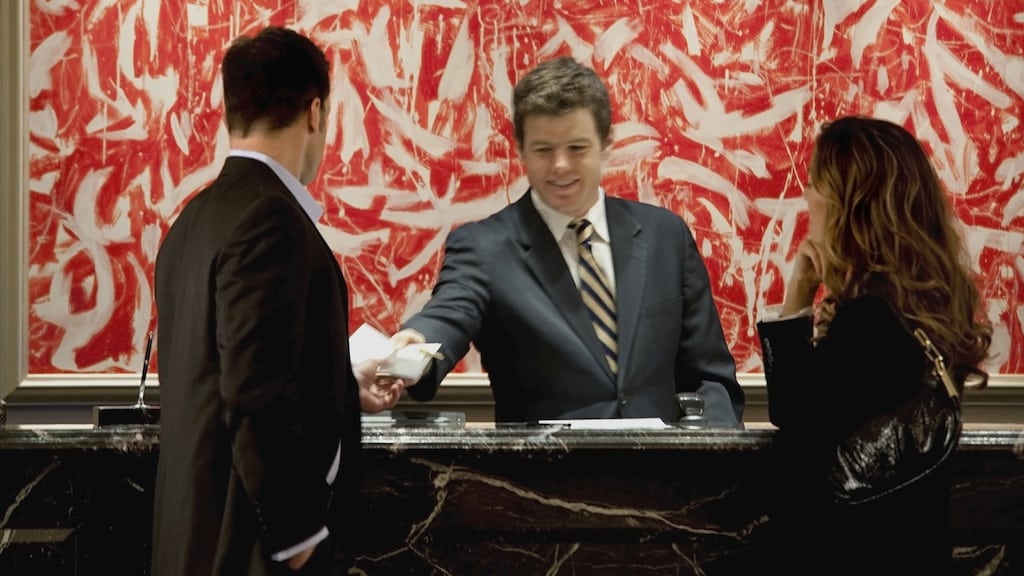7 Hotel CEOs on Empowering Employees Who Work With Guests

Skift Take
Last month we released our second e-book. It was devoted to the Future of the Guest Experience — an unprecedented collection of 28 interviews with the CEOs of virtually all of the world’s top hotel groups including 11 global brands, 13 luxury and lifestyle brands, and four hotel marketing organizations.
By collecting their thoughts on a similar set of topics–from technology and marketing to fees and training–we have tackled the hospitality’s most pressing topics from every angle and gained a glimpse at what the future of hospitality will truly look like.
Below are quotes from the e-book which address how hotels hire and train their employees who interact daily with guests.
Mark Hoplamazian, Hyatt Hotels
Again, through a lot of engagement with our colleagues, we recognized that the on-boarding process that we had in place was very focused on the rules and regulations of employment at Hyatt. We completely scrapped that and have gone towards a much more values-based and culture-based approach to how we introduce people into the Hyatt family.
You really have to end up undoing a lot of operating procedures that you may have thought were good ideas in the past. Instead of giving people a map in terms of what they're supposed to do and make, give them a compass and say, "You figure out how you want to bring yourself to bear.” A compass instead of a map is really one of the key concepts that we are moving towards.
David Berg, Carlson Resider Hotel Group
One of things that I think we're quite unique in is unleashing the power of our people and really allowing our individuals to bring their unique skills and capabilities into the work place.
For example, we hand out an “Employee of the Year” award at our annual convention. This year it was given to a woman name Marsha who is the breakfast hostess at the Country Inns & Suites in Hanover, Virginia. It’s a self-service model but Marsha hugs the guests.
I can assure that nowhere in our written standard operating policies is there a page that says, “Everyone should hug a guest.”
Greg Dogan, Shangri-La Hotels & Resorts
In terms of our service attitude within Shangri-La, I've intentionally gone out to all my general managers in the field, and told them to make sure that we pull back from the white glove syndrome. The days of being ostentatious are long gone. We need to cater to our guests today. Whether that's a multi-millionaire staying with us or a person who just comes in for a cup of coffee, their priorities are good quality and fair price.
Nicholas Clayton, Jumeirah Group
We also have to ask ourselves about when it is appropriate to take some of those steps in the process away because they’re actually burdening the guests or the guests’ preferences are changing? This came up when we recently re-launched one of our marquee restaurants. I was there with another hotelier and we were watching the staff and how they went through their steps of service, and I had to follow up with the leadership of our restaurant group afterwards because I felt like we were doing things to do them, but we weren’t being perceptive about the customer.
In other words, we have to better train our teams of people, our colleagues, in the industry and specifically at Jumeirah, to read people and free them up from what is a documented standard if they can tell that their standards are irritating somebody. We need to tell staff, "Although this is a written standard and sometimes you’re tested against that, we would rather you make intelligent decisions."
Alan Fuerstman, Montage Hotels & Resorts
The thinking culture of our staff, which looks to personalize and address the needs of our guests, is what really differentiates us. From a CEO's perspective, our challenge is figuring out how we inspire our teams to deliver that kind of service over and over again.
Sir Rocco Forte, Rocco Forte Hotels
One of my challenges is how can I improve the interaction between my staff and the customer to make the customer experience a more pleasant one. The interaction between people is a skill, where when you're sitting next to someone you can actually strike up a conversation. For lots of members of hotel staff, that is a difficult thing to do, and therefore, we're trying to develop programs which enable our staff to do it better.
Craig Reid, Auberge Resorts
We would prefer to take someone with less experience and a personal gift than someone who is very experienced but at risk of being set in their ways. Having said that, we want people who are going to be able to empathize and respond to what the customers' wants are.
The single most important thing throughout the guest experience has always about the interpersonal exchange, which will be defined by the quality, motivation, and inspiration of the employee.




